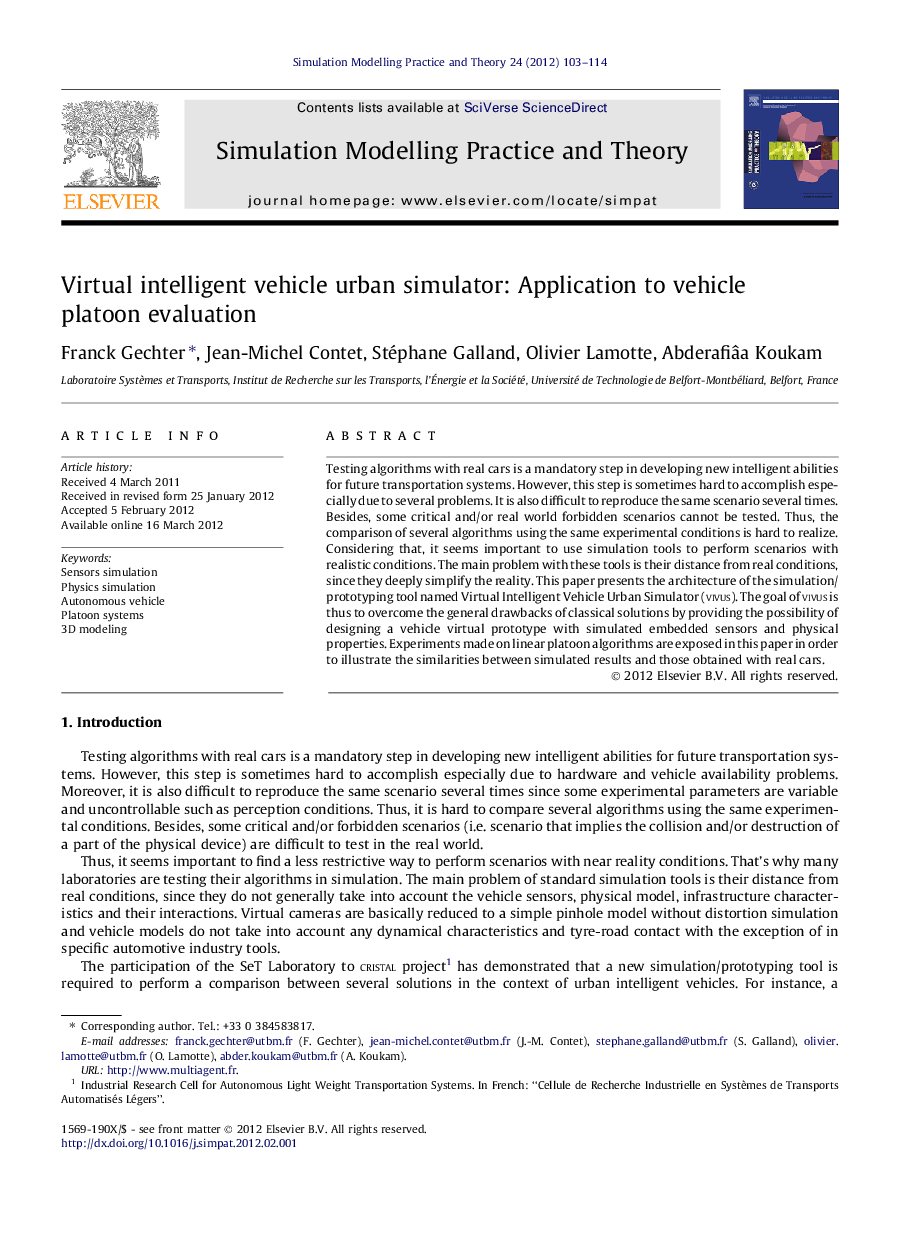| Article ID | Journal | Published Year | Pages | File Type |
|---|---|---|---|---|
| 492669 | Simulation Modelling Practice and Theory | 2012 | 12 Pages |
Testing algorithms with real cars is a mandatory step in developing new intelligent abilities for future transportation systems. However, this step is sometimes hard to accomplish especially due to several problems. It is also difficult to reproduce the same scenario several times. Besides, some critical and/or real world forbidden scenarios cannot be tested. Thus, the comparison of several algorithms using the same experimental conditions is hard to realize. Considering that, it seems important to use simulation tools to perform scenarios with realistic conditions. The main problem with these tools is their distance from real conditions, since they deeply simplify the reality. This paper presents the architecture of the simulation/prototyping tool named Virtual Intelligent Vehicle Urban Simulator (vivus). The goal of vivus is thus to overcome the general drawbacks of classical solutions by providing the possibility of designing a vehicle virtual prototype with simulated embedded sensors and physical properties. Experiments made on linear platoon algorithms are exposed in this paper in order to illustrate the similarities between simulated results and those obtained with real cars.
